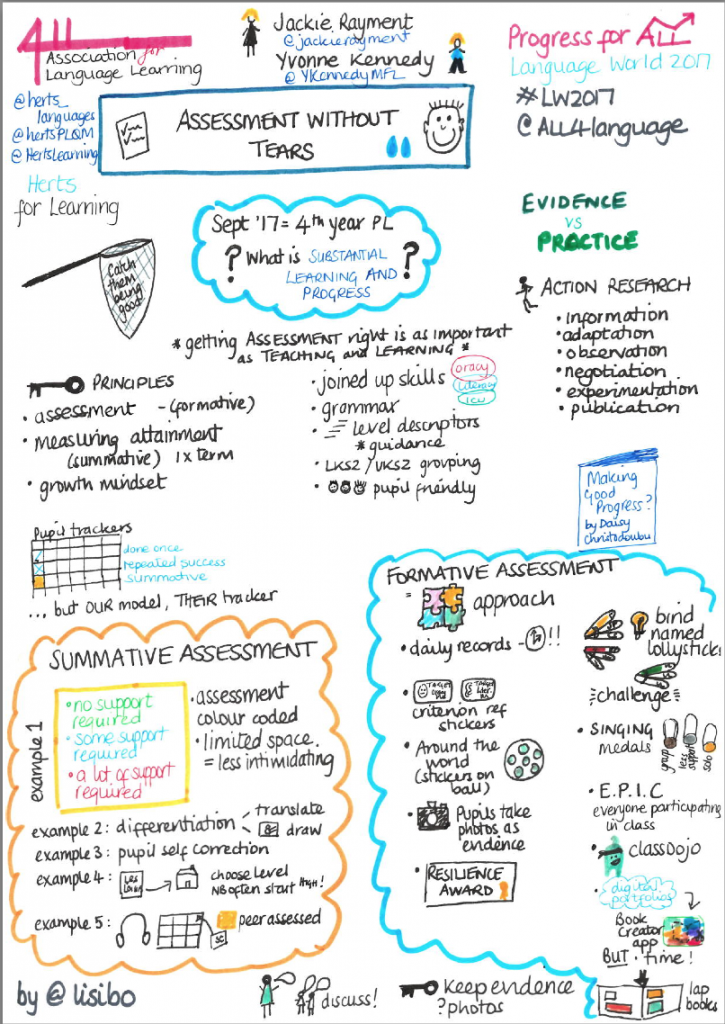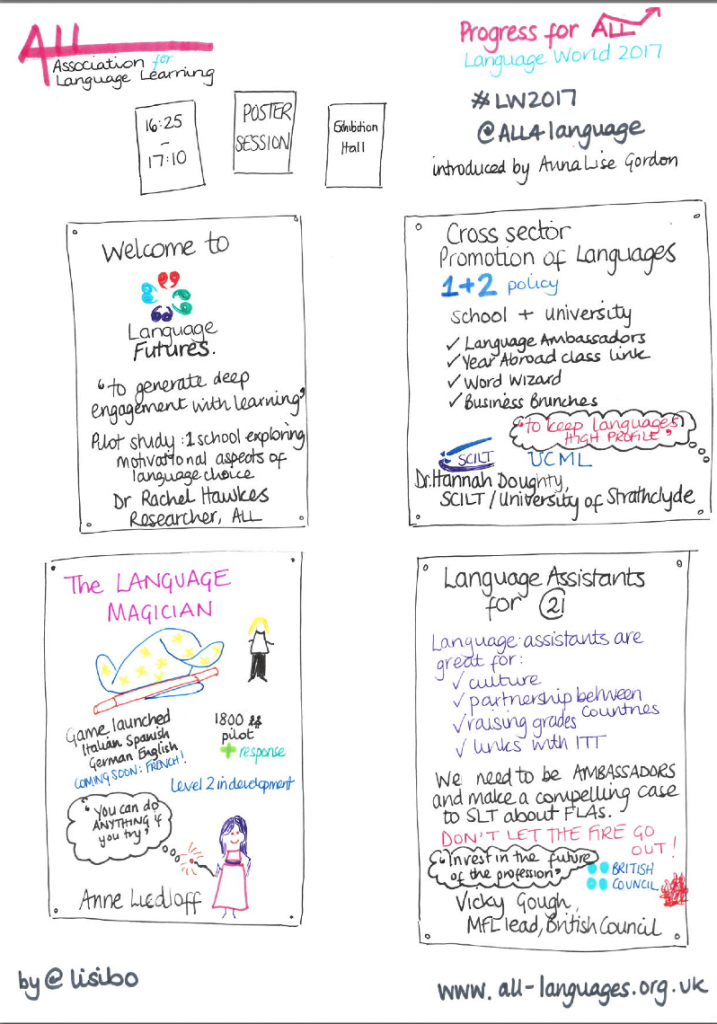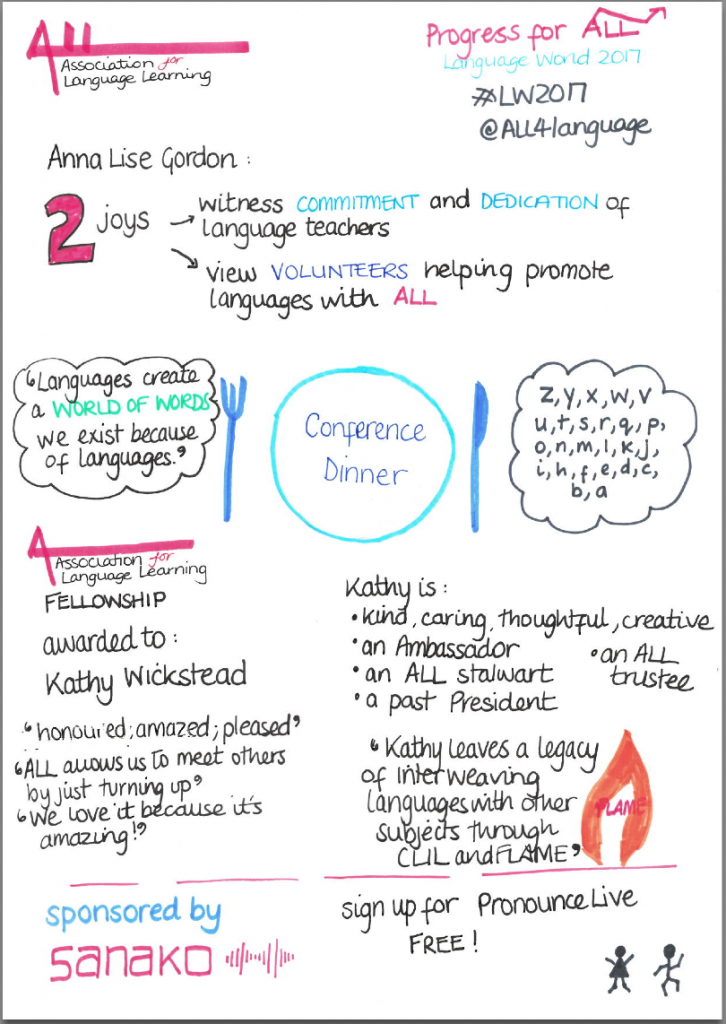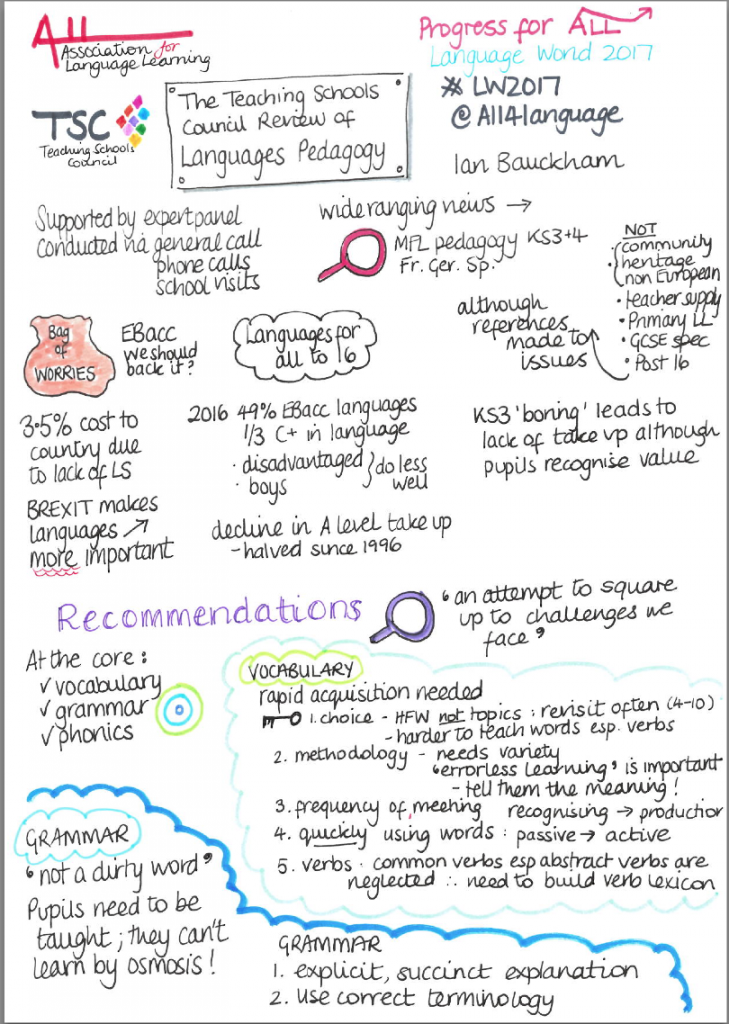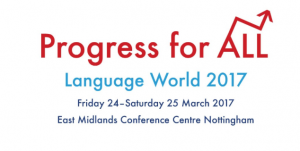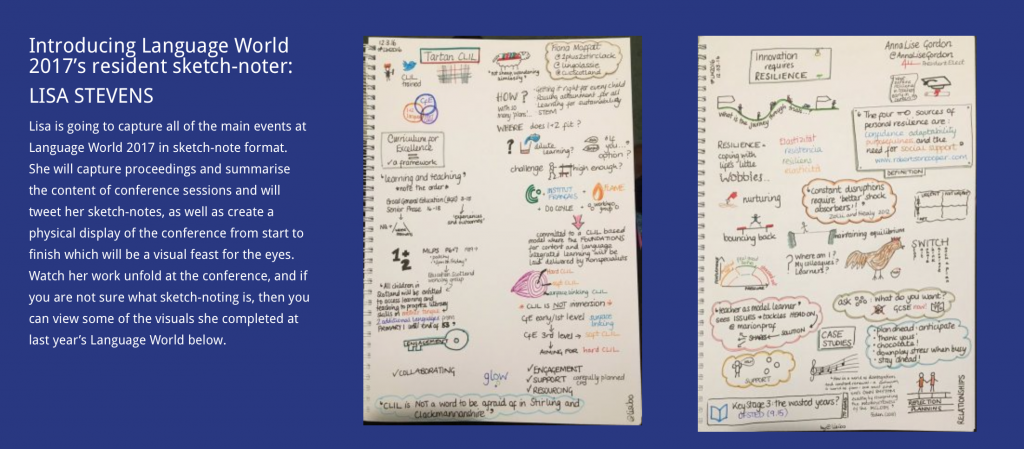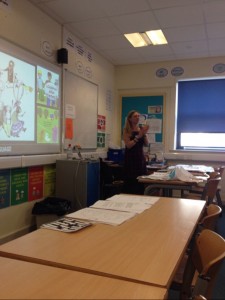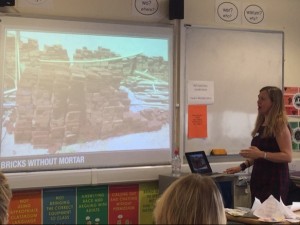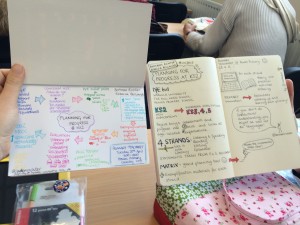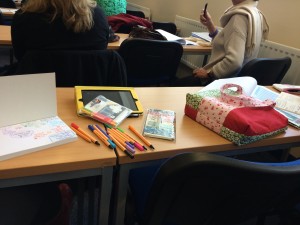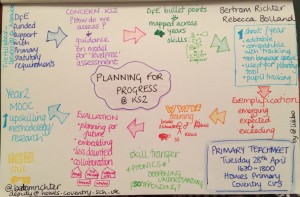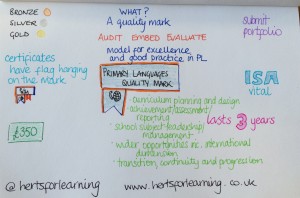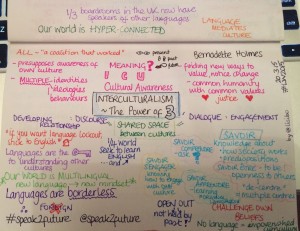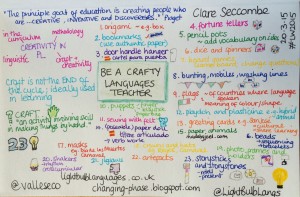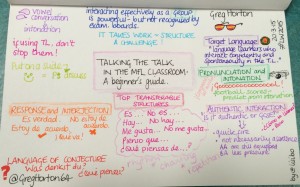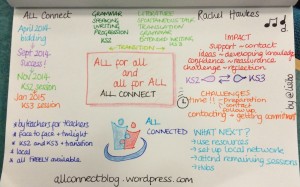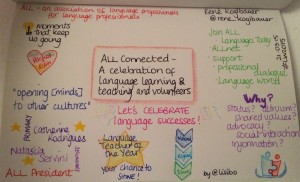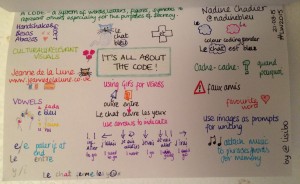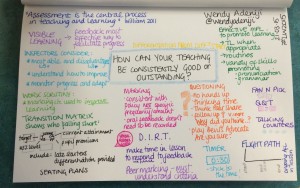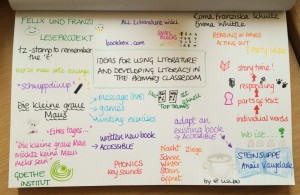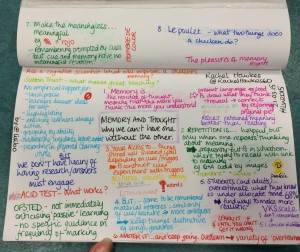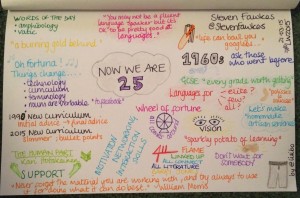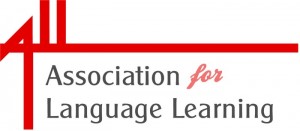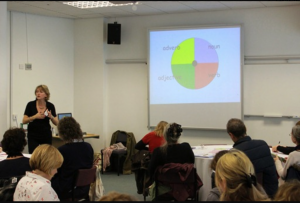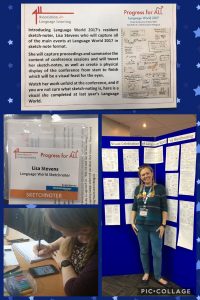
As I reported in February, at this year’s Language World conference in March I was asked to be Resident Sketchnoter and record all the fun and excitement as well as as many sessions as I could possibly attend. It was a challenge as I normally go back to my sketch notes later to ‘pretty them up’ but in this case the sketch was immediately posted on the display board so I had to just go for it! I was really pleased that people took time to look at the display and there was a buzz of discussion and excitement as people paused to discuss what they’d seen. My hand was really struggling by the end of Saturday but it was all worth it!
I’ve deliberately delayed posting them until ALL had done so (although they were all tweeted as I finished them!) and today I received notification that they are now uploaded and ready to view! And they’ve kindly made them into a PDF!
So, here’s the PDF of them all: http://www.all-languages.org.uk/wp-content/uploads/2017/05/Lisa-Stevens-LW-2017-Sketchnotes.pdf (too big to upload here!)
And here they are individually with comments and links to the presentations where available!
DAY 1
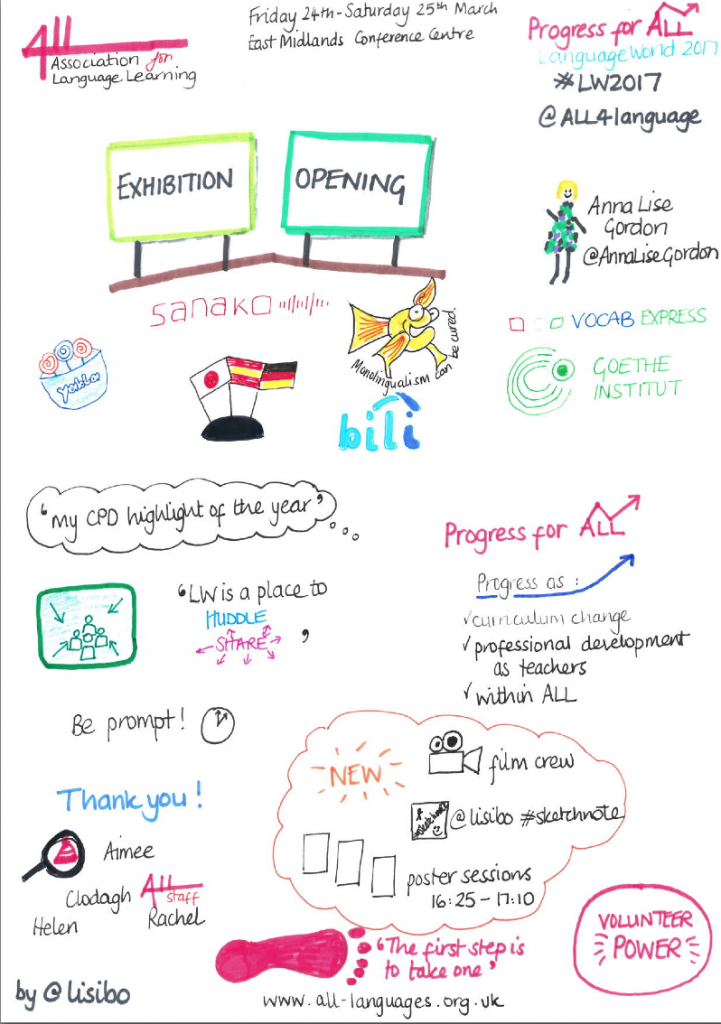
Tried to capture a few of the exhibitors before the conference started in the top section then AnnaLise’s opening words in the bottom section.
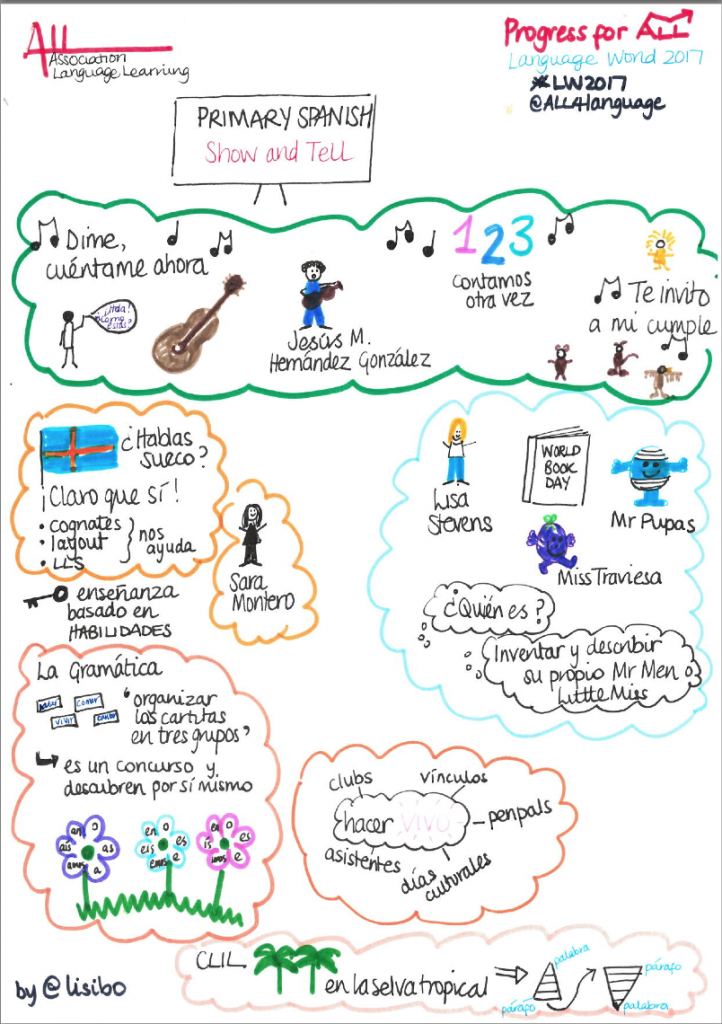
Now here was a challenge – sketch noting and presenting simultaneously! Also presenting with me, Jesús Hernández from the Consejería de Educación and Sara Montero, Primary Language Teacher of the Year 2016 Presentation
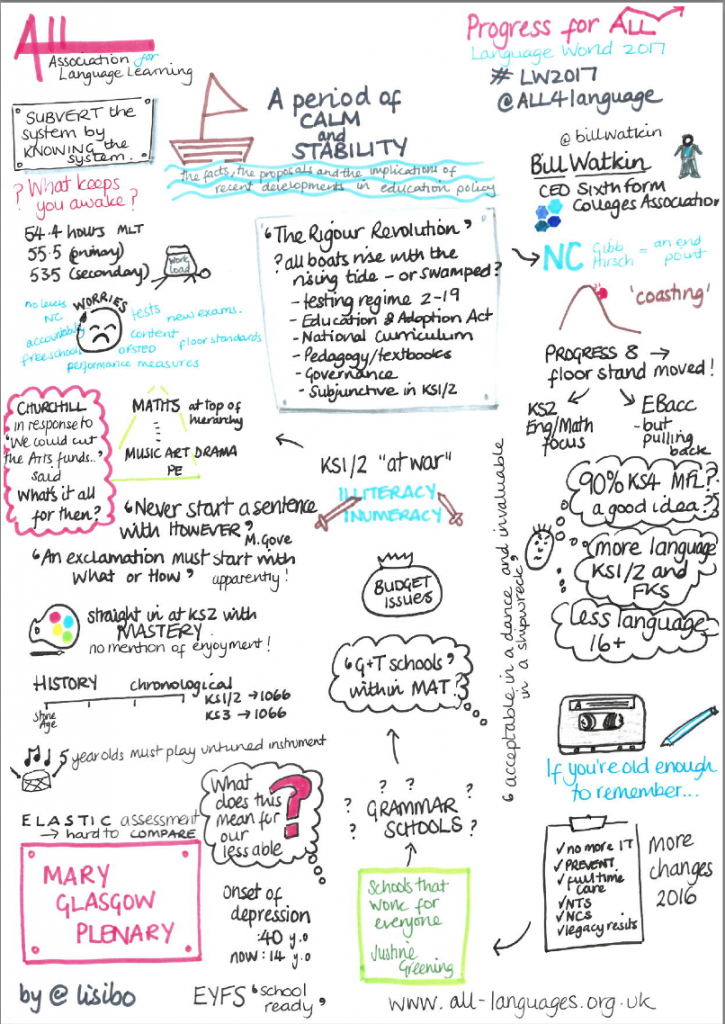
Mary Glasgow Plenary A period of calm and stability – Bill Watkin Presentation
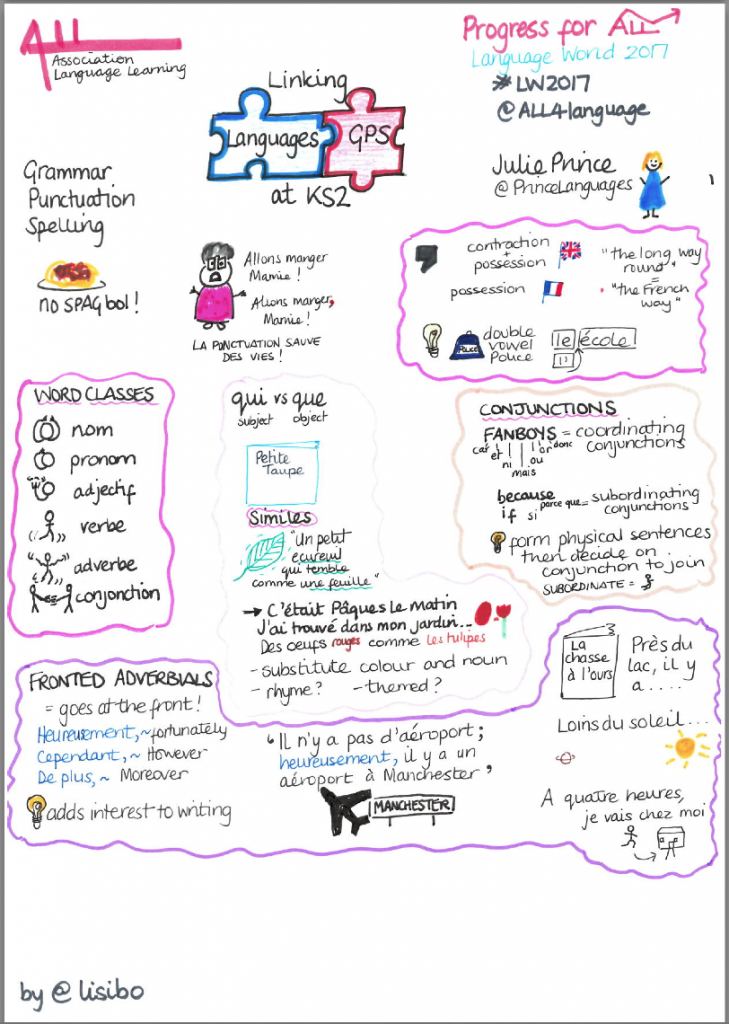
Julie Prince talking about primary language learning supporting Grammar Punctuation and Spelling (not navigation as the title might suggest!) Presentation
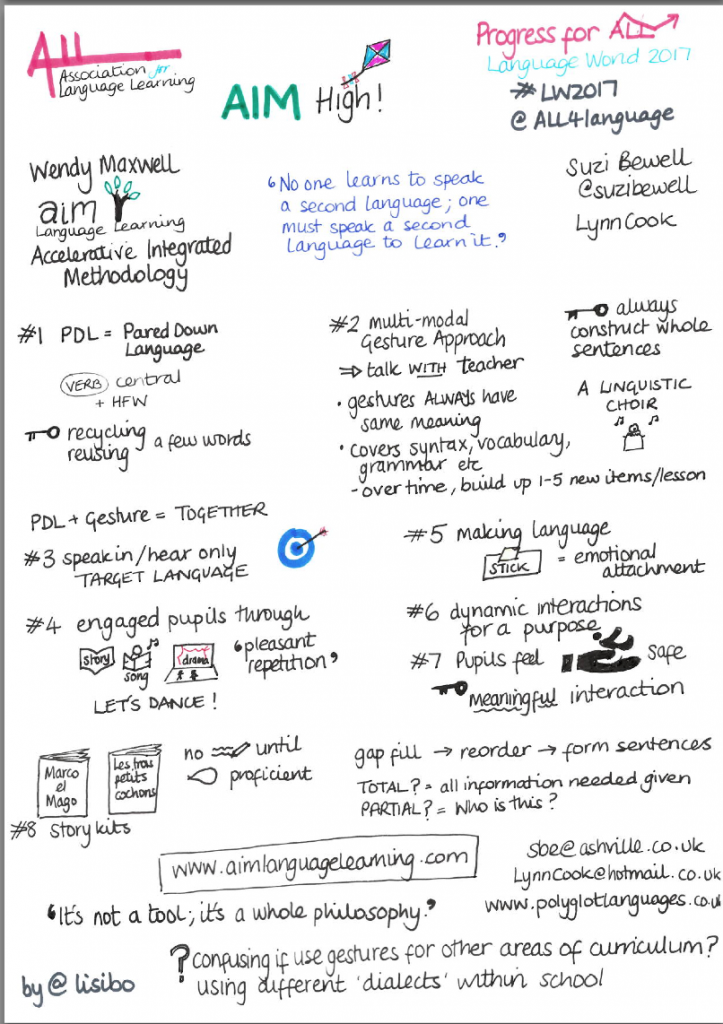
Suzi and Lynn presented AIM methodology to us in this session. presentation
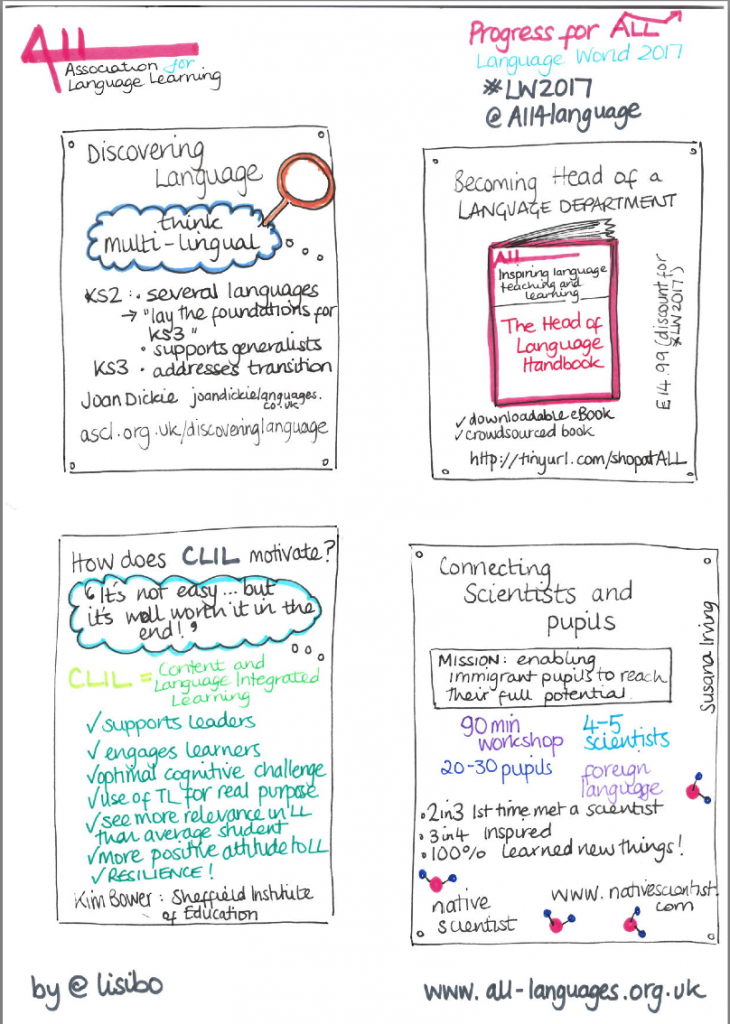
The poster sessions – lots of exciting projects were highlighted here – I suggest you check out the ALL site to find out more! (scroll down to Poster sessions then click on the + for the abstracts)
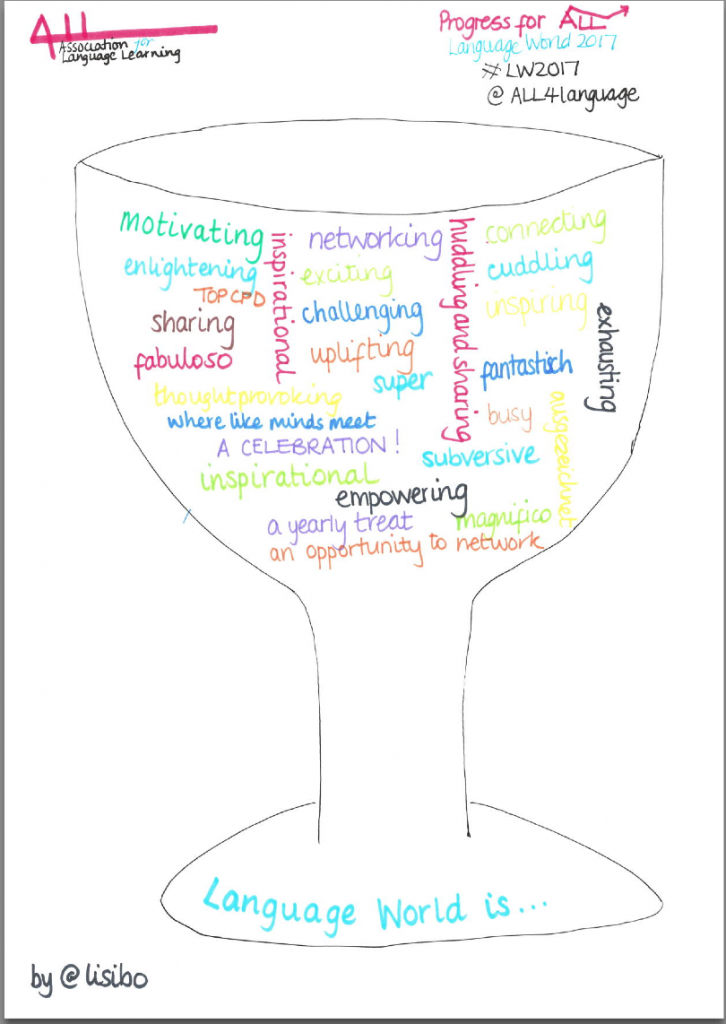
How do you sketch note a wine reception? Thanks to Vicky Cooke for my inspiration, and to all my vox pops!
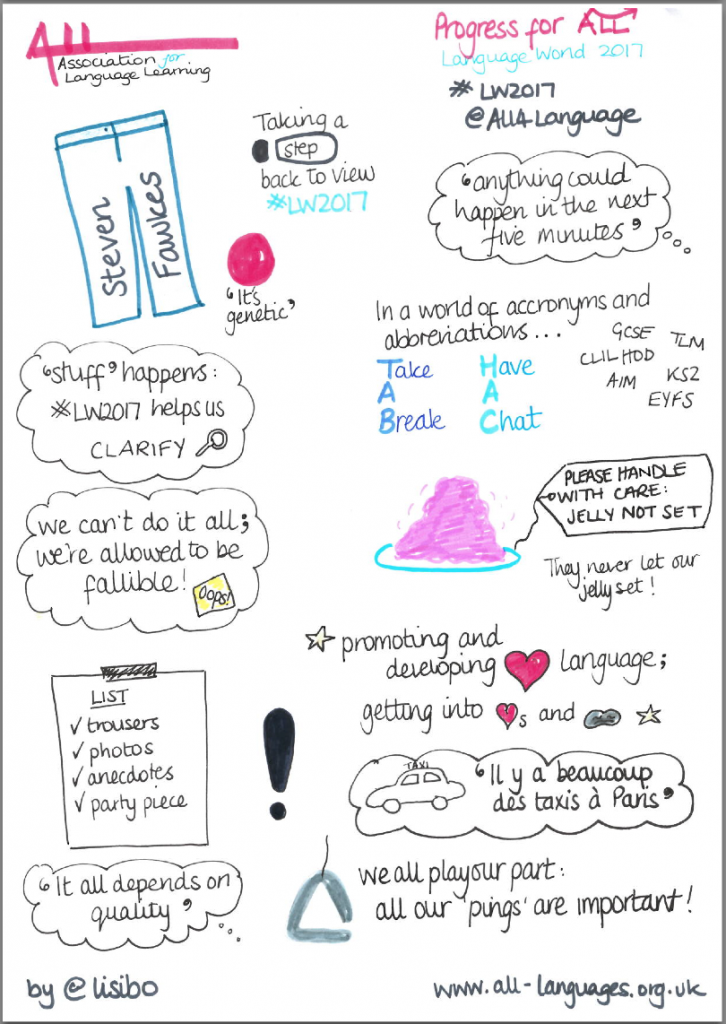
The national treasure that is Steven Fawkes had us all crying with laughter at his witty speech including references to jelly, taxis, triangles, and of course, his trousers!
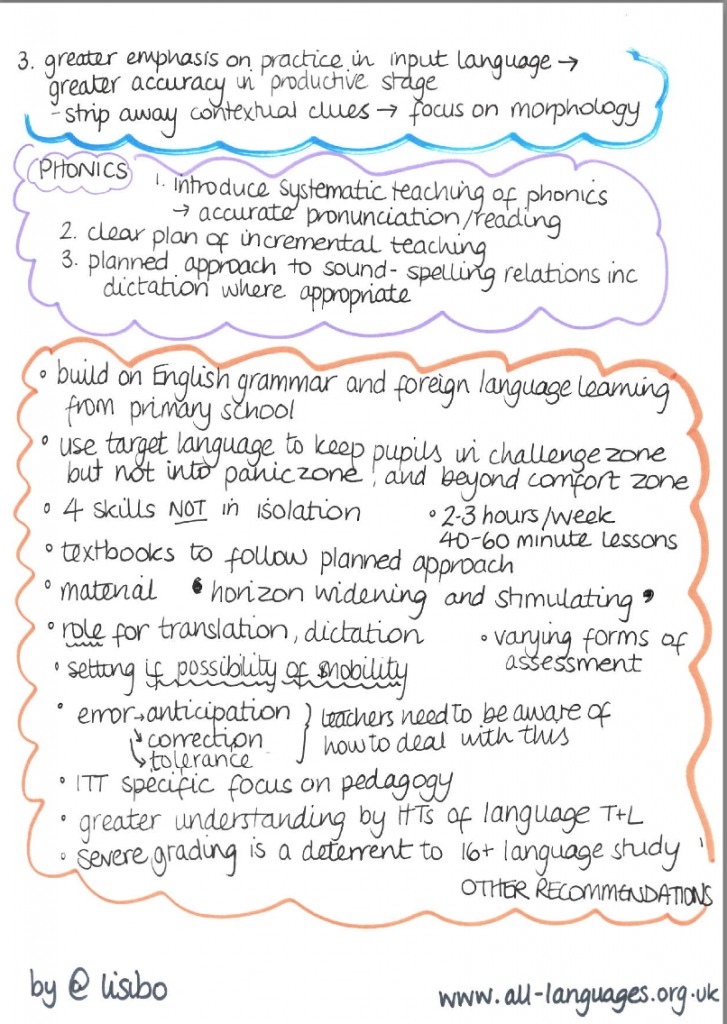
A summary of The Teaching Schools Council Review of Languages Pedagogy, delivered by Ian Bauckham. Very interesting! (Not often I have to use another sheet, and as you can see, a little hard to represent very visually! Presentation
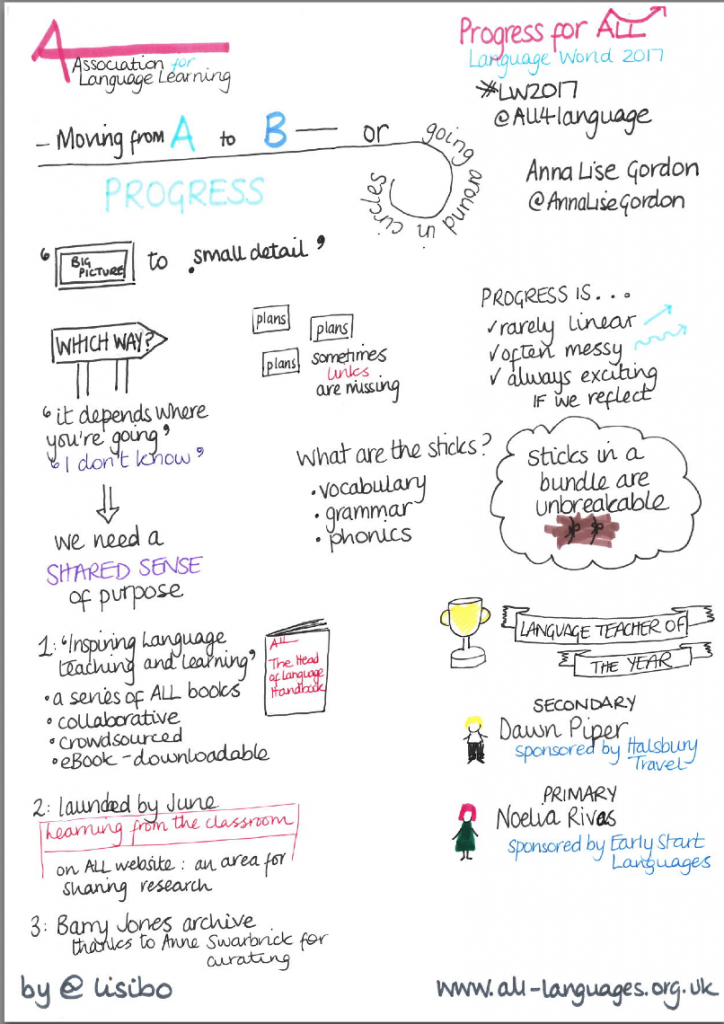
ALL President AnnaLise Gordon was up again to talk about Progress and present the awards for Language teacher of the Year.
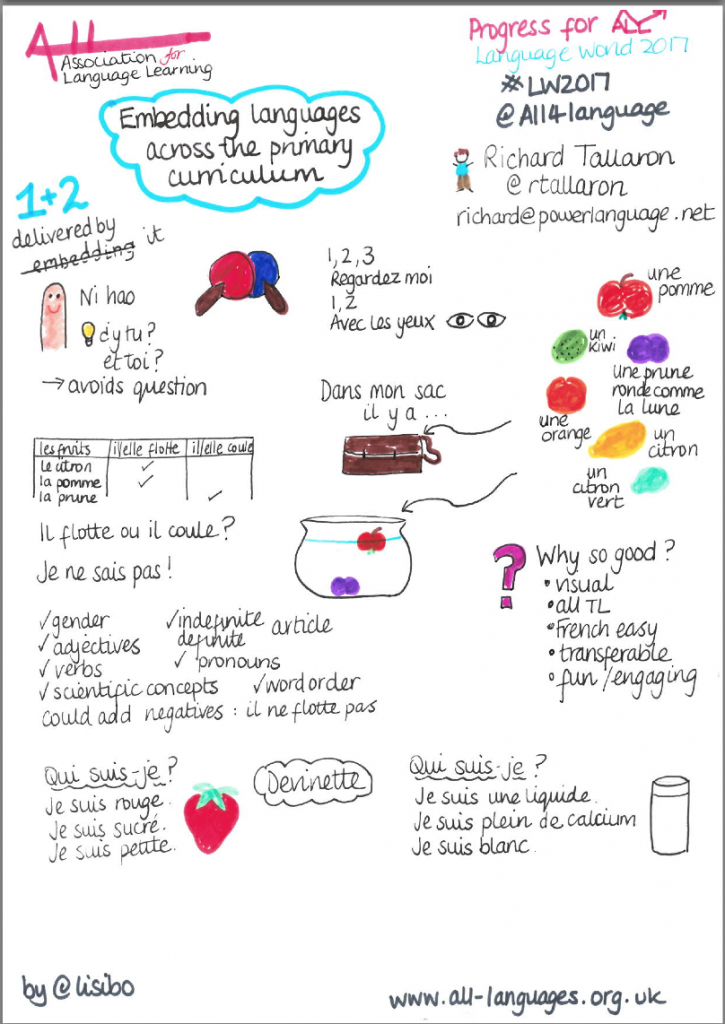
The super fantastique Richard Talleron went fruity in his session on embedding languages across the curriculum. Presentation
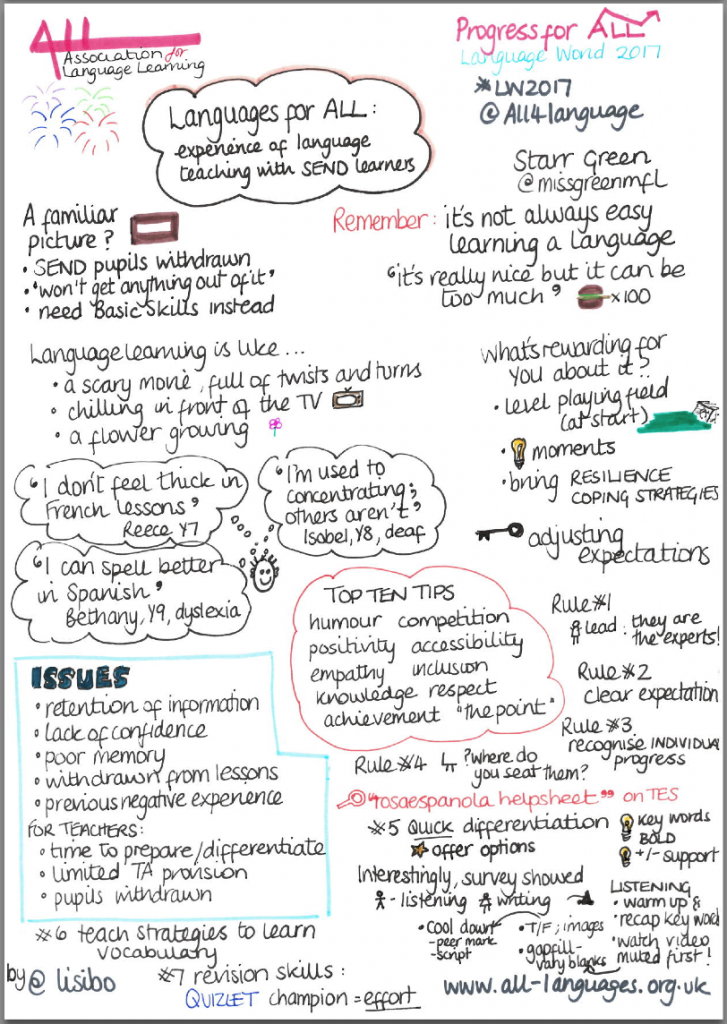
Starr Green spoke about Languages for ALL and gave advice on teaching languages to pupils with SEND Presentation
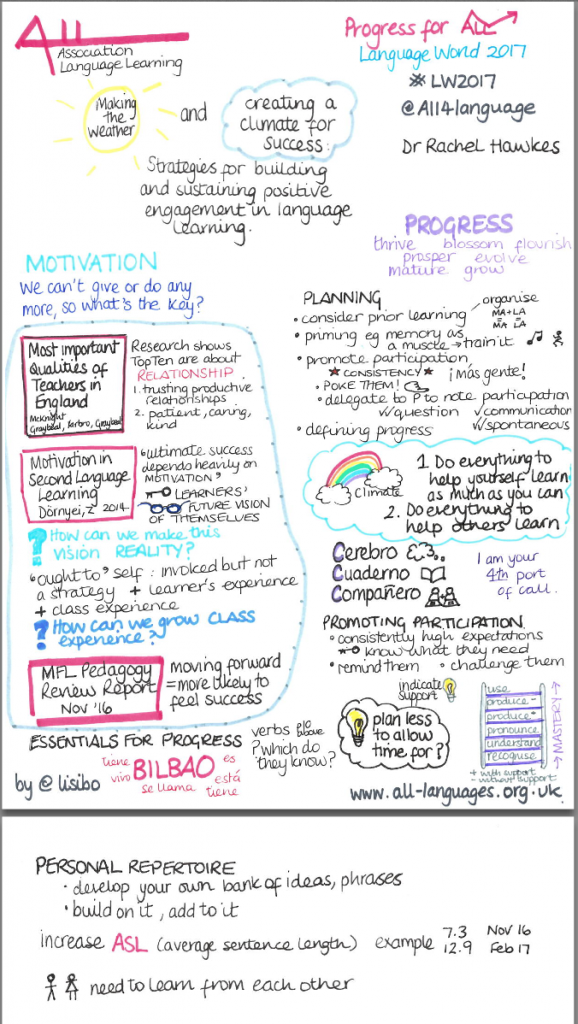
The always inspiring and incredibly clever Dr Rachel Hawkes helpfully talked about creating a positive learning environment, pointing out that sometimes staff can not give or do any more than they already are so something else has to change! presentation
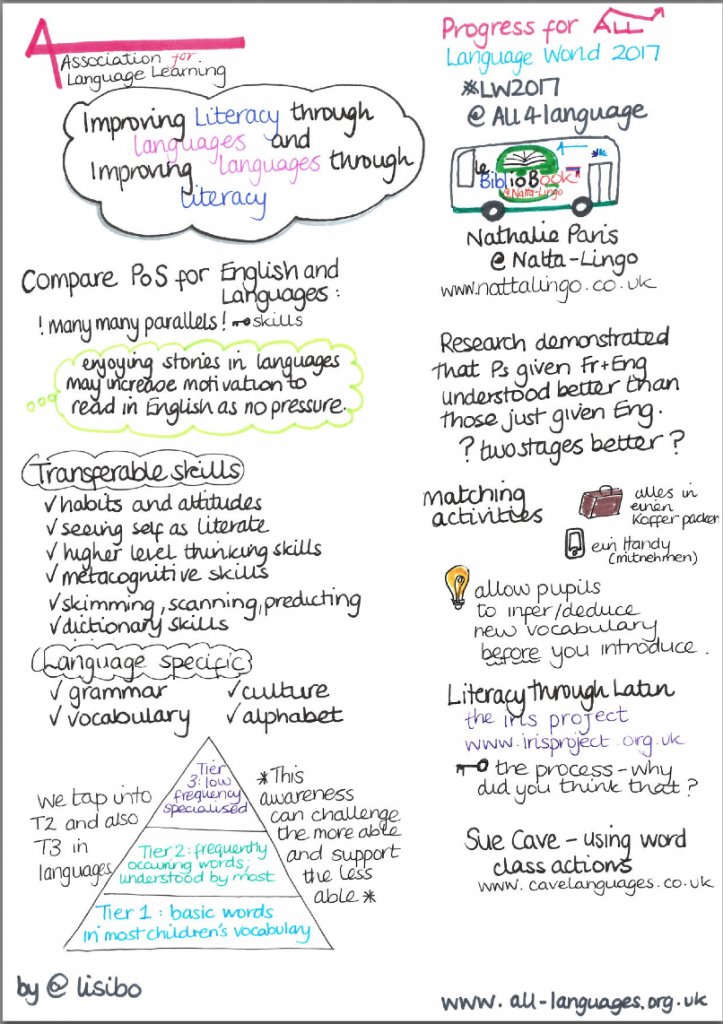
Lovely Nathalie Paris aka Nattalingo shared some ideas and research on the important two way relationship between literacy and languages. Presentation
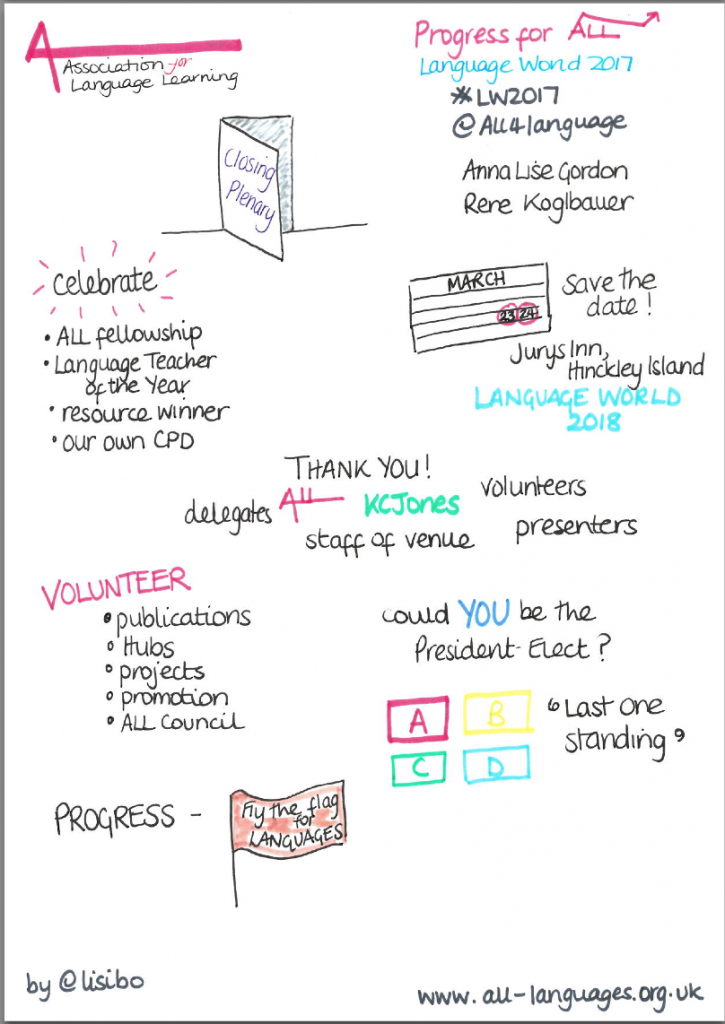
And finally it was time for thanks yous, AnnaLise’s quiz (foiled on the last question!) and the revelation of the date and venue for next year – March 23rd and 24th at Jury’s Inn Hinckley Island near Leicester. presentation
If you want to access any of the other sessions at the conference, many of the presentations have been uploaded to the ALL site Friday and Saturday, and you can read more about it here (also more sketch notes) and here. If you were there and have any reflections, please leave a comment and I can update the post!
And here’s a summary of the tweets!
